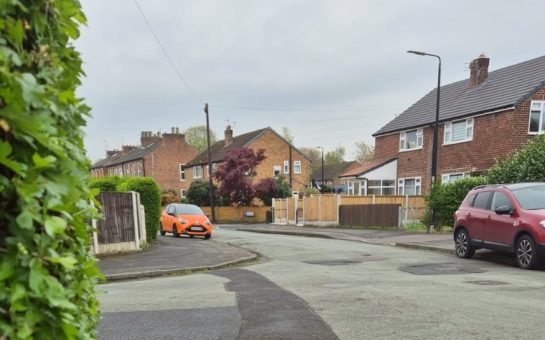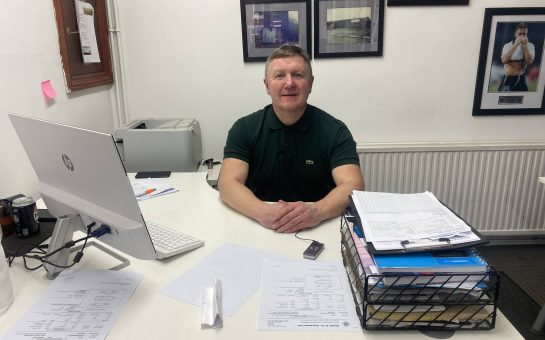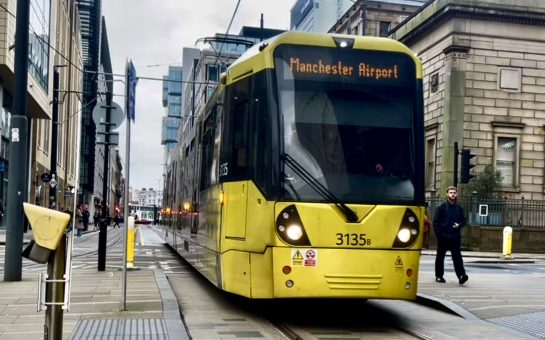Later this year, Rochdale’s ‘Crown Oil Arena’, affectionately known as ‘Spotland’, will play host to a Rugby League World Cup match between England and Fiji.
The reason behind this is a relatively unknown story, which stretches back 60 years.
Orisi Dawai was, according to his tombstone, “Fiji’s greatest sportsman”.
So why is he buried in Rochdale Cemetery?
More than 9,000 miles separate Rochdale in the north of England and Fiji and yet for many living on the tiny pacific island, the greater Manchester town is considered a second home.
While the two places are stark contrasts in terms of food, culture and weather, rugby league has brought them together.
The connection first began in the 1960s when Rochdale Hornets welcomed two Fijians to their side – Joe Levula and Dawai.
But how did they end up switching the fantastic Fijian climate for the rain-drenched Rochdale?
Rugby League historian Tony Collins said: “Traditionally British rugby league had brought in players from Australia and New Zealand. But in 1947 there had been a ban on transfers from Australia and New Zealand because they felt the British clubs were stealing all their best players.
“Clubs that were looking to expand their squads beyond local players began to look at new markets. One of the places was Fiji. The Fijian national rugby union team had come to prominence in 1952 and in 1954 they had beaten the Wallabies.”
Former Hornets chairman Jim Stringer described how Arthur Walker, the club chairman at the time, convinced Dawai to make the move.
He said: “Hornets’ first interest through Arthur Walker was in 57-58 after he saw the Fijians play in New Zealand. But at the time the King of Fiji was still saying that he didn’t want Fijians to leave the country. Fiji was a developing country at the time and its people were its best resource, so he wanted their best and brightest to stay at home and help the country. His death in 1960 opened the gateway and Hornets were a bit sneaky, and in 1961 put an ad in the Fiji Times.”
Dawai responded to the advertisement and confirmed that he would move to Rochdale on one condition – that his cousin Josefa Levula could also play.
For Hornets this was a win-win, Levula was six foot four, 17 stone, and blessed with astonishing pace.
His athleticism was world-renowned, with his impressive 100m running time in the Pacific attracting the interest of Jesse Owens, the American track and field athlete who won four gold medals at the 1936 Berlin Olympic games, quickly dispelling Adolf Hitler’s ridiculous ideologies about the supposedly supreme white race.
Owens visited Levula while he was serving for the Fijian Army in Malaya, as he was desperate to meet the man who could reportedly run 100m quicker than himself, organising a diversion just to meet him in the small town of Batu Pahat.
Upon their arrival in England in ’61, Dawai told the BBC: “We are looking forward to our stay in Rochdale and hope that we settle down into the side as quickly as possible.”
“It is very cold, but not as cold as we expected it to be.”
The duo would make their debuts for the A-team less than a month later in a 14-14 draw against Liverpool City.
They scored all of the Hornets’ points between them.
1525 people turned up at Spotland for the fixture, which was around five times the normal crowd size for an A-team fixture.
Levula would go on to have three highly successful campaigns with the Hornets, scoring 37 tries and 207 points in 80 appearances.
He would then join Bradford Northern for £1500 in 1964.
Dawai, however, was a more adept Union player and struggled to adapt to the change in codes, making just 10 appearances before his sudden death in Birch Hill hospital in 1966.
His influence at the club and in the community should not be underestimated, however, as Mike Ratu Senior testified.
The former Hornets man said: “Orisi was like a father figure to all the Fijians that came to Rochdale.”
“He was an absolute gentleman and a big help to everyone.
“He was a terrific centre but he never quite achieved as much in league as he did in union.
“It was a great shame that he died so young.”
Mike’s son, Emon, who represented Hornets in the 1990s, credited his Fijian heritage as a decisive factor in his decision to swap Swinton for Spotland.
He said: “It’s an amazing story. For my dad, it was an experience to go and better himself. Living on an island where there’s no electricity and no shops, feeding off the land. I thought initially when he came over, it was just to experience what it was like on the other side of the world. When you’ve had a taste of it, you want to stay there.”
Voate Drui and Liatia Ravouvou would also join the club in 1962, with the latter earning himself a place in Rochdale folklore, for his impressive feat of kicking a goal bare-footed.
Jim said: “The thing about the barefoot kicking, yes they did it, but it was showmanship. When the first two guys arrived, they talked a great deal about how they could kick barefoot because when they played on the beach at home, they played barefoot. Somebody said to him at the press conference where they launched the two, can you kick a goal barefoot? He literally picked up a ball with one hand, walked out in the middle of the pitch, took his shoe off and banged it over.”
Although all four players are no longer alive, it seems as if the unlikely connection between the two places will remain strong for the foreseeable future.
The town, which is well-regarded as the birthplace of the Co-Operative moment, boasts the largest Fijian population in England outside of London, so it is clearly still a place that those in Fiji hold in high regard.
Jim said: “I think when they came in 1962, the number of non-Rochdalians in the town was pretty low. I think it’s testimony to the town’s ability to be inclusive and to welcome people in that they were just dropped into the community and people absolutely loved them, people gravitated towards them. It was a two-way street, the Fijians were very open and welcoming. Their house where they all lived was like the unofficial Fijian embassy. You can feel their presence in the town, I don’t think there are many Lancashire mill towns where 1000 people can speak half a dozen words of Fijian, so that’s the impact that they’ve had.”
Joe Dakuitoga’s Fiji side travel to Rochdale to take on England later this year ahead of the 2021 World Cup, which was delayed by a year due to the pandemic.
On this, Jim said: “It’s more than 60 years since the first guys came over. In terms of tradition, in terms of longevity, in terms of social history, very few things last 60 years, I think the fact that its gone 60 years in this town and it’s still recognised, with the next chapter starting this year with the England Fiji game. We know it will sell out, we know we will get loads of guys coming from Fiji, it will be another celebration of the relationship. The likelihood is there will be a lad in that squad we like the look of and it’s just how you keep that impetus moving all the time. Has it got another 60 years in it? I don’t know, I won’t get to the end of it if it does. But it has got legs, it will run.”
Prop Joe Taira is the sole Fijian representative in the current Hornets squad but thanks to the huge popularity of the original quartet in the 1960s, it seems likely that the people of Rochdale will always hold Fiji close to their heart.
And vice versa.



